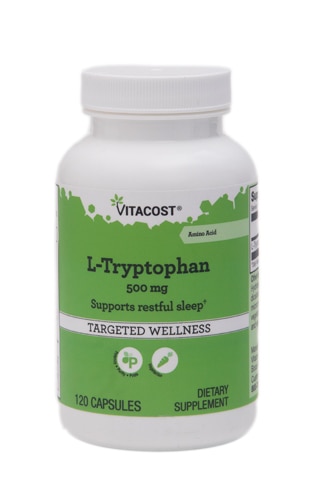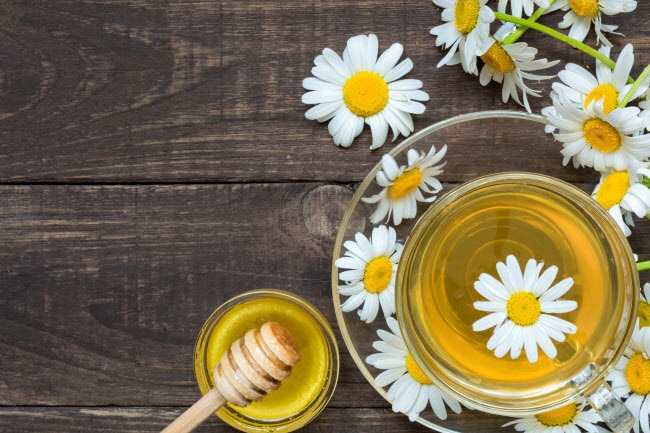Whether it’s acute or chronic, you know that anxiety can wreak havoc on your life—creating complications with those closest to you, rendering you incapable of functioning optimally (or functioning at all), and leaving your physical body in a state of discomfort and distress. But the condition—which affects roughly 40 million Americans (or 18% of the population)—can be mitigated with lifestyle changes.
Chief among them? Diet.
Yes: What you eat directly impacts your mental health and your ability to cope with life’s inevitable stresses.
With this in mind, we’ve pulled together the top four foods to help you manage anxiety—and the 4 foods you should do your best to ditch.
1. The Good: Eggs
Remember when eggs were deemed a diet no-no? Not so much anymore. Mounting research indicates that protein-packed eggs are one of the most perfect foods you can consume. Brimming with fat-soluble vitamins and essential fatty acids, the humble, versatile egg naturally enhances everything from immunity to muscle strength.
They’re also a boon for those suffering from anxiety. This is thanks to the fact that eggs contain tryptophan—an amino acid, typically associated with turkey, that organically fosters serotonin production. (Serotonin is a powerful neurotransmitter that helps moderate mood, sleep, behavior, and memory.) What’s more, eggs are high in zinc, which, Harvard Health reports, lowers anxiety. They’re also rich in choline, a nutrient that’s required for the production of acetylcholine—another neurotransmitter that regulates mood and anxiety.
The bad: It may be the very thing that countless people rely on to reduce stress, but that glass of wine or craft cocktail may be doing more harm than good. Alcohol can lead to dehydration and disrupted sleep, both of which can heighten anxiety. Alcohol also alters your serotonin levels, which may lead to even more angst. One to two drinks per day may be safe (consult with your physician first), but your brain and body will thank you if you opt for a non-alcoholic beer or herbal tea instead.
2. The Good: Avocado
Dipping into a bowl of guac won’t necessarily cure your anxiety—but it may help you curb it.
Jam-packed with antioxidants and healthy fats, avocados can assist with keeping anxiety at bay by facilitating improved circulation. Translation? Improved blood flow to your brain, where the lion’s share of your anxiety rests.
Furthermore, avocados abound with additional nutrition benefits, including over 20 vitamins and minerals that can bolster overall health. A handful of these—including folate, potassium, and Vitamin B6—are directly tied to mood, possibly resulting in diminished symptoms of anxiety (and a brighter frame of mind altogether). In particular, the B vitamins avocados contain, “including thiamine, riboflavin, and niacin,” have “positive effects on the nervous system,” Jodi Godfrey, MS, RD, told Psycom. All the more reason to order up some avo toast at your favorite café.
The Bad: …but skip the coffee while you’re at it. We all know that coffee can increase anxiety and nervousness—who hasn’t gotten the caffeine shakes at some point in their life?—but few realize that coffee can also provoke (or exacerbate) your body’s “fight or flight” response (one of the more uncomfortable symptoms of anxiety). To be safe, limit yourself to two cups per day, and request a matcha tea instead: It provides a “clean” buzz (read: no jitters), while also supplying you with tranquility-boosting L-theanine.
3. The Good: Chamomile
Chamomile has been used to soothe anxiety for centuries. It isn’t just the warming effect a mug of chamomile tea may offer, either: Recent research out of Harvard Medical School demonstrates that chamomile tea is an effective alternative treatment for anxiety.†
Additionally, chamomile tea has been linked to sounder sleep. This is due to its inclusion of apigenin, an antioxidant that “binds to certain receptors in your brain that may promote sleepiness and reduce insomnia,” Healthline reports. And with solid sleep under your belt, you’ll be better able to handle the curveballs life throws your way.
The Bad: Sugar! Sure, there’s nothing like a cupcake to revivify a sour mood, but sugar as a whole is dangerous territory. You may feel temporarily elated—due to the hit of dopamine the sweet stuff supplies—but after the spike, you’ll inescapably crash. Even if you shy away from desserts, the sneaky substance can be found in everything from ketchup to salad dressing, potentially putting you on a rollercoaster of highs and lows. Read food labels and satisfy your yen for sweets with fresh, organic fruit instead.
4. The Good: Dark, Leafy Greens
Dark, leafy greens such as broccoli and kale not only help keep your waistline in check—they can also aid in easing the symptoms of anxiety. Thank magnesium for this benefit: The mighty mineral not only bolsters digestive health, but it also organically promotes relaxation. (In fact, according to a study published by the National Institutes of Health, mice with diets low in magnesium displayed increased anxiety-related behaviors.)
Also, dark, leafy greens—especially raw, fresh dark, leafy greens—are rich in a number of micronutrients that can quell anxiety and improve overall mental health. According to a study conducted by Frontiers in Psychology, increasing one’s intake of raw vegetables (such as spinach) leads to an increase in positive mental health, including reduced anxiety.
The Bad: Few things sound more chill than relaxing on a beach with a glass of wine and a plate of blue cheese and artisan meats, right? And yet, research shows that aged, fermented, and cultured foods can result in the antithesis of a serene experience. This is due to the fact that the process breaks down food proteins into biogenic amines. One of these is histamine, a neurotransmitter that impacts your hormones, cardiovascular and nervous systems, digestion, sleep, and, yes, anxiety. Swapping these eats for dark chocolate and Brazil nuts? Now there’s a recipe for a happier, more laid-back mood.
†These statements have not been approved by the Food and Drug Administration. These products are not intended to diagnose, treat, cure or prevent disease.




